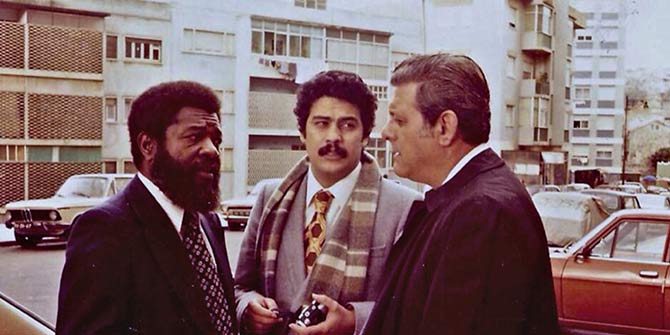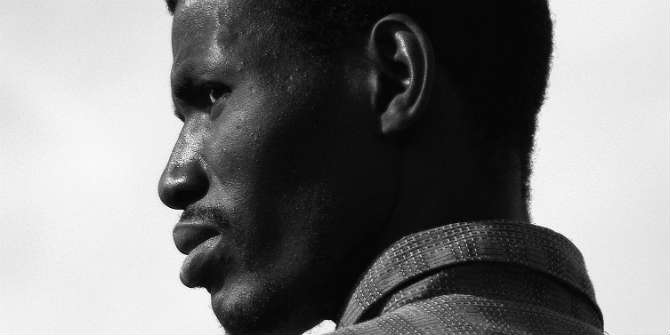LSE’s Benjamin Chemouni ponders the consequences of the failed coup in view of an upcoming presidential election.
On May 13, while Burundian President Nkurunziza was in Tanzania, the state’s former head of intelligence and former army chief of staff, General Major Godefroid Niyombare, tried to depose him.
This coup happened in the midst of ongoing protests (violently repressed) against Nkurunziza running for a dubiously constitutional third term.
Two weeks after the failed coup, what are the consequences for Burundi?
The failure of the coup gives President Nkurunziza unprecedented foresight in the run-up to the elections. He has discerned who in the army is loyal to him and who is not. It has also given him the perfect excuse to purge the army’s more moderate elements, and especially the old Tutsi guard.

As a result, the army, which has provided buffer between demonstrators and the police, might gradually lose this role. Moves to sideline those only “tepidly” supporting President Nkurunziza in government is also at work, as shown by the recent cabinet reshuffle.
The coup has also allowed Nkurunziza to move more forcefully against the independent press by portraying it as in support of the conspirators. The failure of the coup has also instilled fear of reprisal among protestors, although demonstrations have continued unabated – a sign of courage but also of exasperation towards Nkurunziza.
Nkurunziza wants to play on these advantages by holding elections as soon as possible. Despite the coup, he postponed the municipal and legislative elections by just a week. The presidential election remains scheduled for June 26.
In this race against the clock, he is endeavouring to compensate for the withdrawal of donors’ support for the electoral process. Not only has he reallocated resources from the Burundian quasi-bankrupt ministries to the electoral budget, he has even organised crowdfunding for the election via Facebook.
Yet, the elections are now largely delegitimised. Given the scale of violence, the fear among the people, the hindering of independent media, and the killing of an opposition party leader, they simply cannot be said to be free and fair.
The recent withdrawal of the powerful church from the electoral regional commissions and the flight of two members of the national commission to Rwanda further delegitimises the elections.
While the failed coup undoubtedly reinforced Nkurunziza’s power, it also undermined his legitimacy.
The situation in Burundi also has far-reaching economic consequences. In the short term, it further weakens the economy.
The freezing of donors’ money is aggravating Burundi’s recurrent shortage of foreign currency. Already two banks have suspended activity on Burundian franc accounts in the East African Community. Several ministries are currently paralysed due to insecurity and lack of funds.
In the long run, if Nkurunziza succeeds in holding on to power through violence and an illegitimate election, the consequences for the development of the country will be severe.
Firstly, this would isolate Burundi on the international scene. Donors, already dissatisfied with overt government corruption and human rights violations over recent years, are likely to reduce their flow of aid to the already quasi-bankrupt state.
Despite its corruption and ineffectiveness, Burundi had been attracting money because its political transition from the civil war was, until now, seen as a success that donors were determined to consolidate.
Secondly, Nkurunziza’s lack of legitimacy would make corruption and violence the tools of choice to keep himself in power. While he was previously able to rely on legitimacy inherited from his role as a rebel leader during the civil war and from the relatively free and fair elections of 2005 and 2010, this is now irrevocably damaged. Its basis for power in the party and the army has considerably narrowed as well.
In this context, violence, corruption and clientelism are likely to become the only glue of the ruling elite.
Of course, no one at the moment can predict exactly what will happen. Yet, Nkurunziza’s position seems stronger than ever. For him to remain in power would be a missed opportunity for Burundi.
Although economic performance and governance records since the end of the 2005 civil war have been poor, the transition from war to peace has been considered a success. The consociational constitution that sets quotas for Hutu and Tutsi in the political and security spheres has proven successful in mitigating decades of mistrust between ethnic groups.
The current protests are as much a rejection of Nkurunziza’s poor results as a president as an attachment to the rule of law that has so far provided the relative stability the population has been craving after a decade of war.
This article was first published on the LSE International Development blog.
Benjamin Chemouni is a PhD candidate in the Department of International Development at the London School of Economics and Political Science (LSE). His research explores the variation of state effectiveness between Rwanda and Burundi. Follow him on Twitter @BChemouni.
The views expressed in this post are those of the authors and in no way reflect those of the Africa at LSE blog or the London School of Economics and Political Science.





